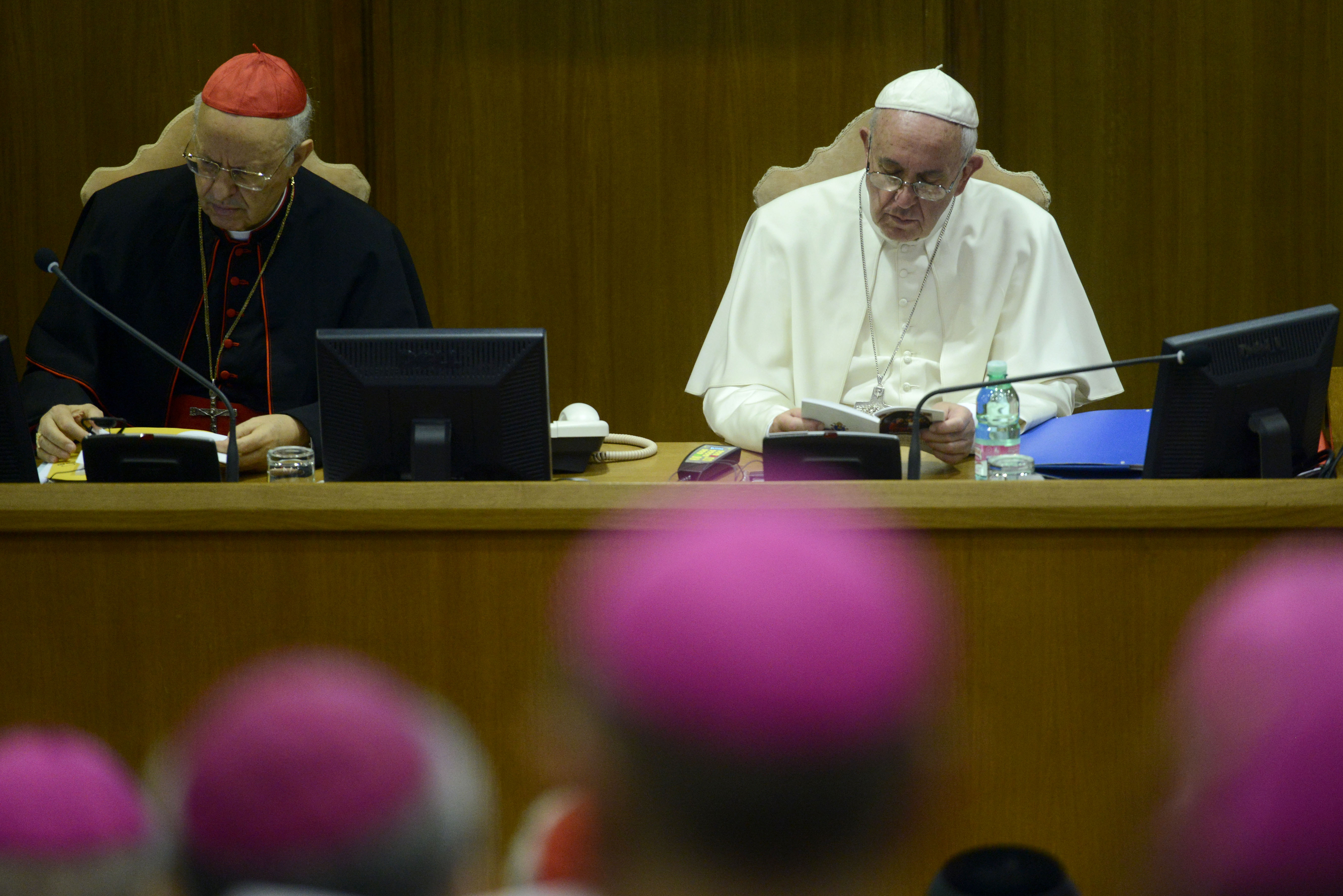EDITORIAL
Opening of the Synod on the Family inside the Vatican. The words of the Pope. Joint reflections on truth and mercy, doctrine and pastoral care

“Apostolic courage, evangelical humbleness, and faithful oration”: these are the three virtues requested by Pope Francis to all 270 Synod Fathers gathered in the Vatican October 4. As in last year’s opening address, “parrhesia” was the first word heard in the Synod Hall, when the Pope called upon the fathers gathered for the first general Congregation of the XIV Ordinary Assembly of the Synod on the Family “to read reality with the eyes of faith and with the heart of God”. Since “the deposit of faith”, “does not represent for the Church a museum to view, nor even something merely to safeguard, but is a living source from which the Church shall drink, to satisfy the thirst of, and illuminate, the deposit of life”. “Without listening to God, all our words are only words that meet no need and serve no end”, Francis warned. “Without letting ourselves be guided by the Spirit, all our decisions will be but decorations”. The Synod, the Pope pointed out, “is not a parliament” where “to reach a consensus or a common accord there is recourse to negotiation, to deal-making, or to compromise”: it is an “ecclesial expression”, a “protected space” in which the Church “experiences the action of the Holy Spirit” where we are “guided by the God who always surprises”; the God who is always greater than our logic and our calculations”. The Synod “refuses to be intimidated in the face of the temptations of the world”, nor even before “the petrification of some hearts” which “drive people away from God”. It does not to lead to “finger-pointing nor to judging others, but to hands outstretched to help people without ever feeling oneself superior to them”. The line dictated by the Pope is clear. Truth and mercy, doctrine and pastoral ministry are the two tracks which the Synod, since the celebration of this second, conclusive stage, intends to follow starting with the desire to “accompany” families’ concrete lives. The theme was also addressed by Cardinal Péter Erdő, general rapporteur, who retraced the three parts of the “Instrumentum laboris”, the basic document of the works of the three coming weeks. The family is “a theme that cannot be delayed” in Church mission, and the unprecedented initiative of Pope Francis to celebrate the Synod in two stages – underlined Secretary General Cardinal Lorenzo Baldisseri – has triggered utmost interest along with the active participation of all the people of God”, as confirmed in the 102 answers to the 46 questions contained the questionnaire annexed to the “Relatio Synodi” provided by those entitled, to which were added over 400 reflections sent by parishes and dioceses, ecclesial associations and groups of faithful, movements and civil organizations, families and individual Catholics; not to mention the contribution of experts and scholars. No special effects and no sterile immobility either, as emerged from the opening sessions of the Synod. “If from the Synod you expect a spectacular change in doctrine you will be disappointed”, assured cardinal André Vingt-Trois, delegate president-in-office. To the same question, the Secretary General of the Synod, Monsignor Bruno Forte, integrated the answer of cardinal Vingt-Trois explaining that at the same time “this Synod gathers not to say nothing. It is not a doctrinal but a pastoral Synod, as was the case for Vatican II, since it brings the Church closer to the men and women of our times”. “The Church cannot be insensitive to pastoral challenges”, Forte added. “It is a matter of identifying, in faithfulness to the doctrine of the Church, the best ways to address these situations”. Thus the Synod “will not bring changes to the doctrine, while pastoral challenges” represent “an important matter at stake”. Among the hottest issues for the public opinion figures the question of remarried divorcees, for whom cardinal Erdő encouraged the opening of “counsel centres” in dioceses, calling for “a merciful pastoral accompaniment, that leaves no doubt on the truth of the indissolubility of marriage taught by Jesus Christ”. As for access to communion, “it is not the breaking up of the first marriage but cohabitation in the second one that prevents access to the Eucharist”. Pastoral attention is due “to people with homosexual tendencies”, without discriminating but also without inappropriate comparisons with marriage and the family. A busy agenda, as expected. The Synod has just begun.